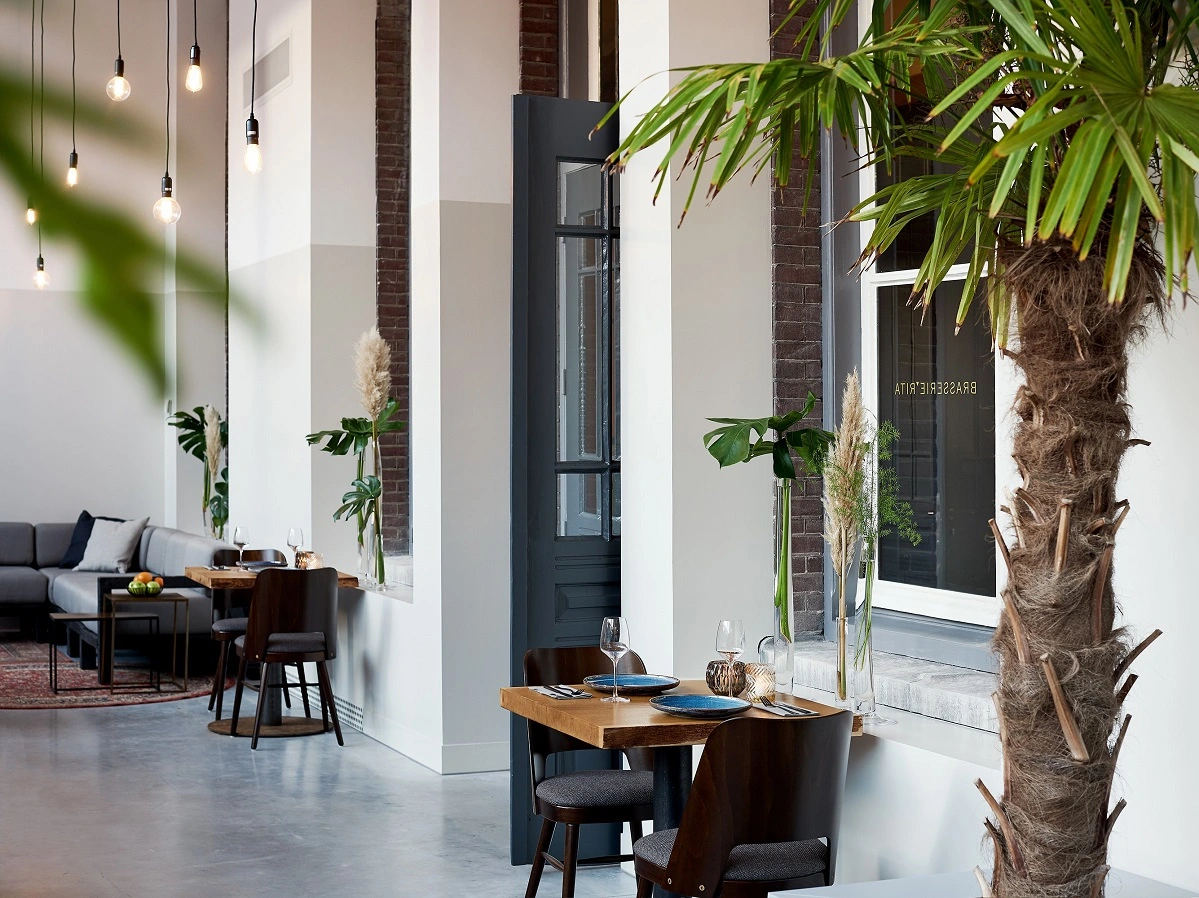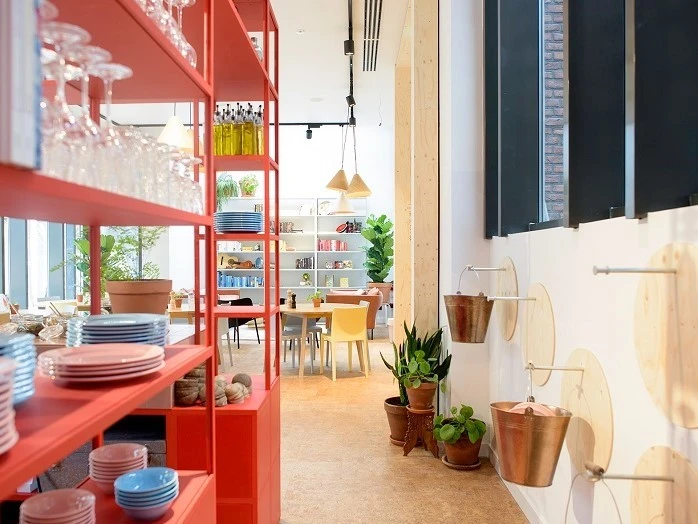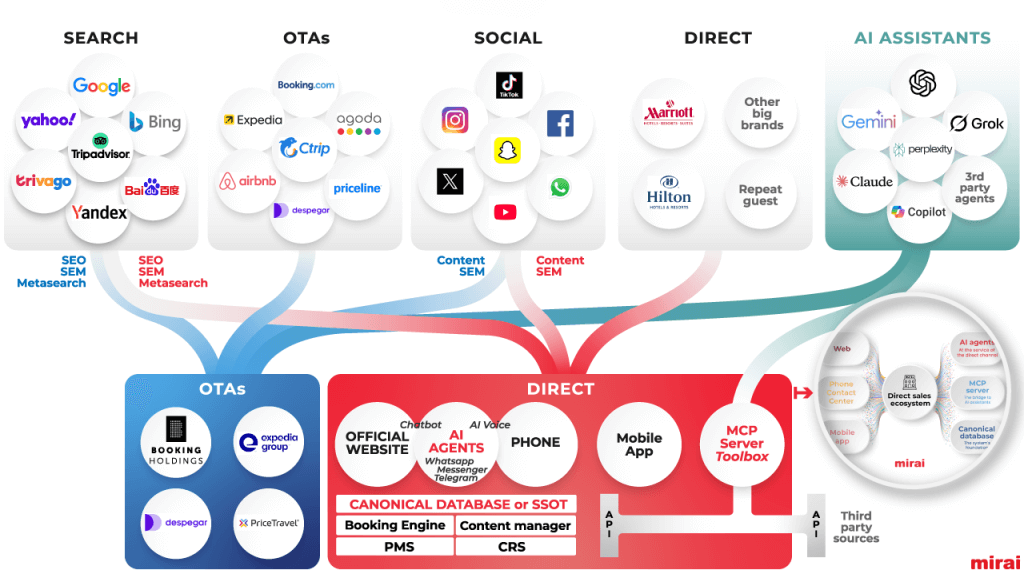
It is now more important than ever to make every guest’s stay be as fulfilling and enjoyable as possible for your hotel.
NB: This is an article from Xotels
It is simply too great a risk to lose revenues as a result of bad reviews, having to issue refunds, or through other issues that generate guest complaints.
In this article, we reflect on where such issues may arise, how to measure, and how to take fast, effective action allowing you to manage your hotel in the best way possible.
Subscribe to our weekly newsletter and stay up to date
In this article:
- Personalize your hotel experience: the guest is king
- Break the barriers and silo mentality
- Rethink your value-adds
- What hotel guests really want
- The importance of perpetual adaptation
1. Personalize the Guest’s Experience: They are King (and Queen)
According to one study, 25% of customers would be more loyal to travel experience providers if they understood their needs through marketing. And according to American Express Travel, 93% of travellers indicate that the value of personal service cannot be replaced, regardless of technological advances in the travel industry.
So what can you do precisely to get to know your customers better? Here are six tried-and-tested tactics:
- Ask why they travel and what they are specifically looking for when they do. After all, you don’t get if you don’t ask, right? This also enables you to build more personable rapport with your guests.
- Integrate a strong customer relationship management system and operating procedure, which are foundational imperatives to keep track of everything.
- Define a goal to provide all guests with a hyper-personalized service
- Partner with local companies to provide experiences and offers. These might include day trips, walking tours, physical activities, local cuisine cooking classes, and so forth.
- Collect all happy customers´ reviews (check out our tips on the best ways to collect hotel guest email addresses) and actively focus on guests who might not have had a good experience with you up to that point. The former – guests with a good experience – will strengthen your reputation online. By also turning your attention to guests who have had a less than stellar experience, you can still try to savage it and turn it into a winning stay.Often, guests with a complaint are very appreciative of being listened to and having their complaint addressed promptly. It can and so often does actually turn a negative situation into one that produces repeat custom from the guests who were formerly unhappy.
- Promote word-of-mouth marketing among your guests by asking them to tell their friends, family, and work colleagues of their positive stay. Word-of-mouth remains the most effective marketing strategy of them all. In this way, your guests become powerful brand ambassadors for you.
2. Break the Barriers and Silo Mentality
By “barriers” we mean the limitations that a silo mentality produces. A silo mentality is when a department or management group does not share their own specific tools, information, processes, priorities, goals, and proven recipes for success, with their counterparts across the hotel business. The silo mentality can negatively impact operations, reduce employee morale, and may contribute to the overall failure of a company or its products and culture.
Often, departments are very capable of helping each other, but unfortunately, all too often competition between departments and different management groups can set in. Rather than inadvertently promote a competitive streak between different business areas, your hotel can foster a culture of mutual support, for the greater good and outcome for your hotel.
How Breaking the Barriers can Create an Exceptional Guest Experience
Ask yourself, what is more convenient and what allows for a better experience:
Having a fragmented guest experience without making a true connection with any staff member?
Or…
Entering the hotel and having a seamless customer journey with the same employee? This would essentially be a front of house staff member, with a personal touch, similar to that of a concierge.
The experience could be as follows:
- The guest is greeted upon arrival by this employee
- They provide suggestions on what to do in the city. They can include their own perspective and opinion here. This way, it is more personal and authentic.
- Offer to make restaurant reservations
- Provide a city tour catered to their own unique needs and preferences, working with local tour guides
- Transportation is arranged
- Bringing the guest a cup of coffee, tea, or refreshment on the house if, for instance, they are waiting for the rain to stop, or for a taxi to arrive
- Providing them with an umbrella if it is raining (and not waiting for them to ask)
Providing such a high-level, personalized experience such as the above interactions allows for a relationship with the guest to be developed.
It enables your hotel to transform from siloes created by different positions and functions to a seamless guest stay and service. Some of these tips might sound cliché, but we have seen first-hand that this is where hotels make the difference. They make the guest feel special and appreciated, and the interactions become much more natural.
To achieve success with this approach, it is essential to get this mentality across to your staff. It must involve a mindset shift and requires training. However, it will certainly pay off.

3. Rethinking your Value Adds
Customers are increasingly focused on experience as a differentiator, along the same lines in terms of importance as price and value. For this reason, it is critical to no longer focus primarily on price alone. In addition to competing on price, can you identify unique selling propositions that are non-price related and to offer something that your competitors can’t match? This applies to before, during, and after the guest’s stay.
On the Operations Side
You can create value through outstanding service
This could include special moments that are unique for guest interaction. For instance, a cocktail hour or to provide complimentary snacks. These act as low-cost opportunities to add value to the guest experience.
Getting creative
For special occasions, your chef can prepare something for the occasion. For instance, perhaps it is a guest’s birthday or they have received some celebratory news, or even certain times of the year, such as New Year’s Eve, Halloween, or festive holidays.
Insider tip: for next to no additional cost
Banqueting, breakfast service, and the kitchen nearly always have some high-quality ingredients left over, such as small cakes or treats. Using these, the kitchen can make something at virtually zero cost. You can really make a guest’s day – and stay – by adding a personalized touch, such as their name in frosting or accompanying it with a card.
To make sure that you get it 100% right, you can ask other guests in a group for details on what certain individuals might like in terms of personalization, perhaps at check-in.
Insider tip: personalize your pancakes or other treats
It is very easy to make personalized pancakes/treats or to include a silly, fun message or art on them. This can be especially delightful for children. And they are tasty too! This is especially the case if your hotel has an in-person, cooked-to-order cooking station front-of-house. It creates such a memorable, enjoyable experience.
Creating a itinerary for the guests for free, catered to their needs
An itinerary for each guest can be an outstanding option. To make it quick and easy for your hotel, you can create a template, which can easily be amended to fit the guests needs. For instance, a morning at the spa, before a bike tour in the afternoon, and a lunch basket prepared by your hotel.
Every single interaction with your guests is an opportunity to create moments to inspire them. In return, this will help improve revenue and promote positive reviews and word of mouth marketing. It is a win-win-win outcome!
On the Marketing Side
When it comes to effective marketing, you can rethink offers to be unique. They should always be personalized now, in this day and age of big data and increased consumer demands. We have seen how successful hotels can be when they communicate these personalized offers to their guests. Offers should be based on customer preferences recorded in your CRS and PMS systems.
Armed with the right customer data, you can send out personalized recommendations for events, activities inside the hotel and in the local area. In this way, you provide added value and reason to travel. When personalized to their needs, it is far more valuable and, as a result, appreciated. It does, however, require care and caution.
According to Qubit, 80% of consumers are open to switching their choice if they find services that cater to their needs better. The same applies to marketing, with 25% of consumers more loyal to a travel brand that shows an understanding of their needs through its use, according to Netimperative. This enables hotels to avoid what customers feel are irrelevant offers, such as specific periods or seasons in which they would never travel, or types of vacations they would never book – for instance, a young couple who receive family package offers.
Insider tip: make it as easy as possible for your guests
Make sure all options such as packages, upgrades, add-ons, and so forth, are instantly bookable at the same time of booking with a simple online interface or over the phone too.
And for an extra revenue opportunity, you can build on your online strategy by offering a small portion of experiences that are exclusively available through direct bookings.

4. What Hotel Guests Really Want: Attentiveness and Responsiveness
The foundational key to delivering your customers what they truly want is to understand them, and to understand them – to really get them – your hotel really has to develop an initiative to get to know them. This can be done in various ways, or by bringing various tactics together under one unifying strategy. They include the following:
- Deliver exceptional service. Then ask for and pay close attention to the provided feedback
- You can ask guests if they have any personal requests or preferences that aren’t cost-prohibitive for you to deliver.
- Review the amenities that your hotel provides: what are truly useful to your guests, and which represent an opportunity cost where an alternative could generate more value based on what guests really want?
- Great features to consider are:
- Choice of pillows (thickness, size, material)
- Complimentary breakfast or cocktail hour – drinks and snacks, with the possibility of customizing to your hotel´s location (e.g. local delicacies)
- Tablet or phone for guest use
- Local turndown gift
- Small exercise equipment for long-stay/regular guests
- Listen to what guests are really saying and suggesting. Maybe they will mention something important – crucial insights that inform business decisions – if you show genuine interest in what their experience is like.
- Complaints should always be dealt with professionally and appropriately, without ever letting personal feelings come into play. And when it comes to complaints, although better avoided in the first place, service recovery is even better than perfect service, as counterintuitive as that may seem.
Leverage your Hotel´s data
As we always say, data is critical to optimized performance. Daily reporting on overall hotel performance is a must and should also include detailed accounts of guest complaints, including their reasons, how they were resolved, and how to prevent them from reoccuring.
Data allows for control and opportunity to reflect on performance, and indicates how to become more responsive and resilient. Embracing advanced hotel success tech is essential to achieve this. A good, reputable pairing of a property management system (PMS) and central reservation system (CRS) are prerequisites.
The right technology is also key to protect your company from malicious cyber attacks, guests with bad intentions, and other possible eventualities that could hurt your business.
A powerful tech stack can enable your hotel to:
- Reply to reviews quickly, professionally, personally and authentically.
- Spot fake reviews. You then then process removal requests if inappropriate or should there be a conflict of interest.
- If your review score is trending down, good tech helps you to take action more efficiently. As a result, top-line performance will follow.
5. The Final Word: Never Stop Learning by Continually Adapting
When something doesn’t work it is crucial to recognize that it doesn’t and try a new approach. This takes humility, the ability to cut one’s losses, and start again. It also requires strong ability to reflect critically. For instance, which KPIs can be improved? What are your competitors doing better than your hotel? How can you harness your team’s individual and collective capabilities and efforts for improved outcomes?
Sharing goals and information between departments and all teams can motivate and drive everyone in the same direction. The same applies to learning and knowledge sharing. Sometimes managers can lose sight of the fact that the employees with the greatest levels of “on-the-ground” knowledge about their guests are the bartenders, waiters, concierges, and receptionists. It can be easy to overlook just how valuable these employees really are in this respect.
Managers can and should be constantly asking employees to gather valuable information. For instance, what have they seen today? Any complaints? Any feedback? Any comments about anything in particular in the hotel? Employees don’t tend to share this unless they are asked to do so. After all, as the saying goes, if you don’t ask, you don’t get.
Without proper communication, it’s so much more difficult to achieve goals and targets. Hotels often miss out on revenue opportunities because of inefficient communication between departments, such as between revenue management and marketing. Striving for synergy between departments can bridge this divide. So get your team together and start driving your results to new heights!
Read more articles from Xotels
PS. If you need help with your hotel, click here: Hotel Management Consulting.




